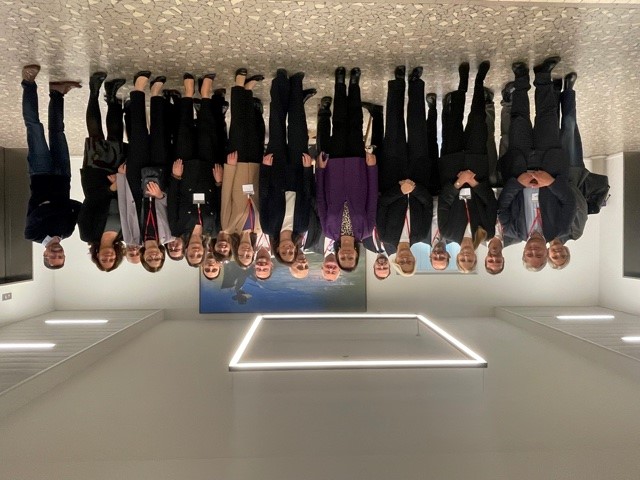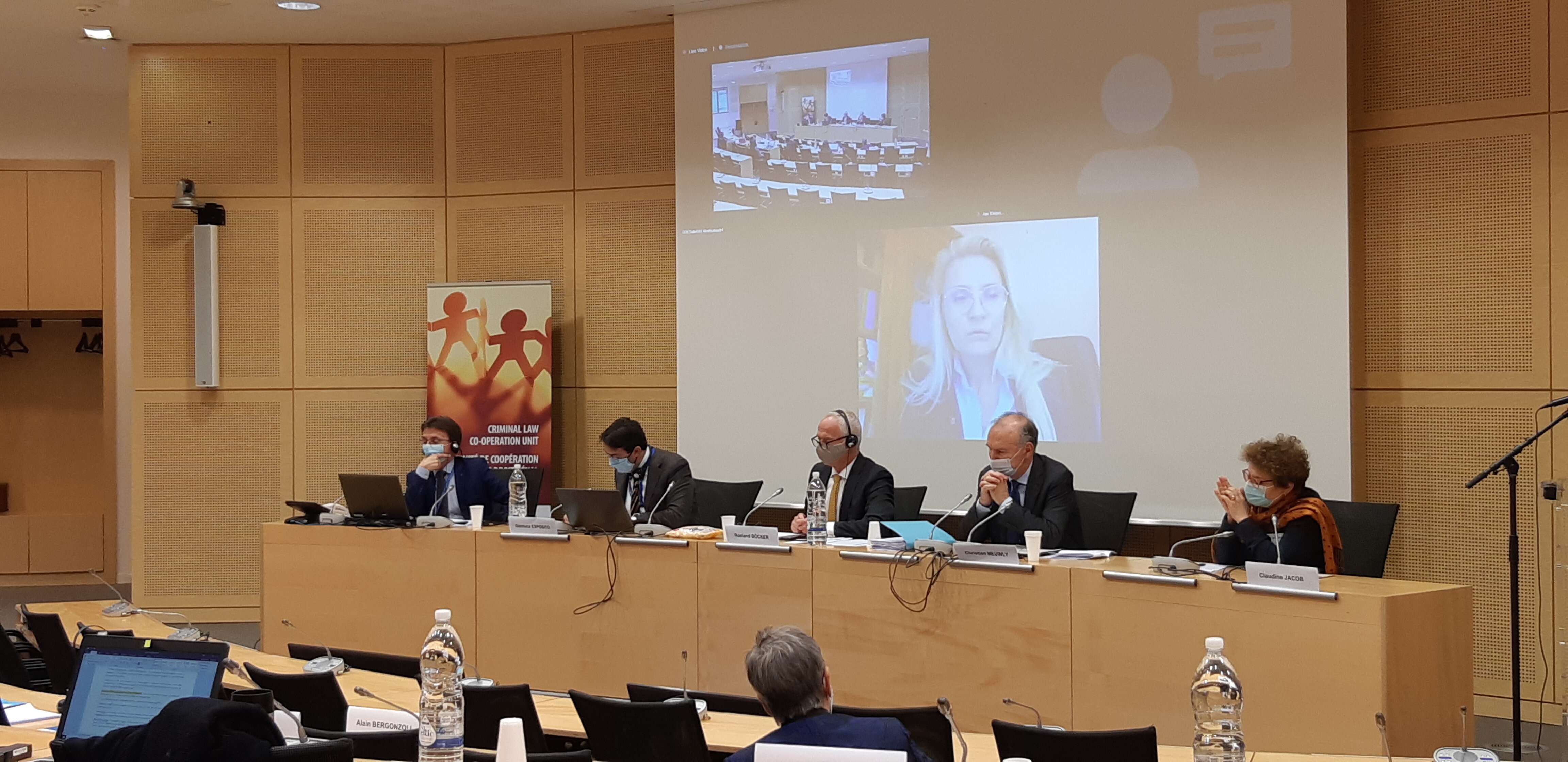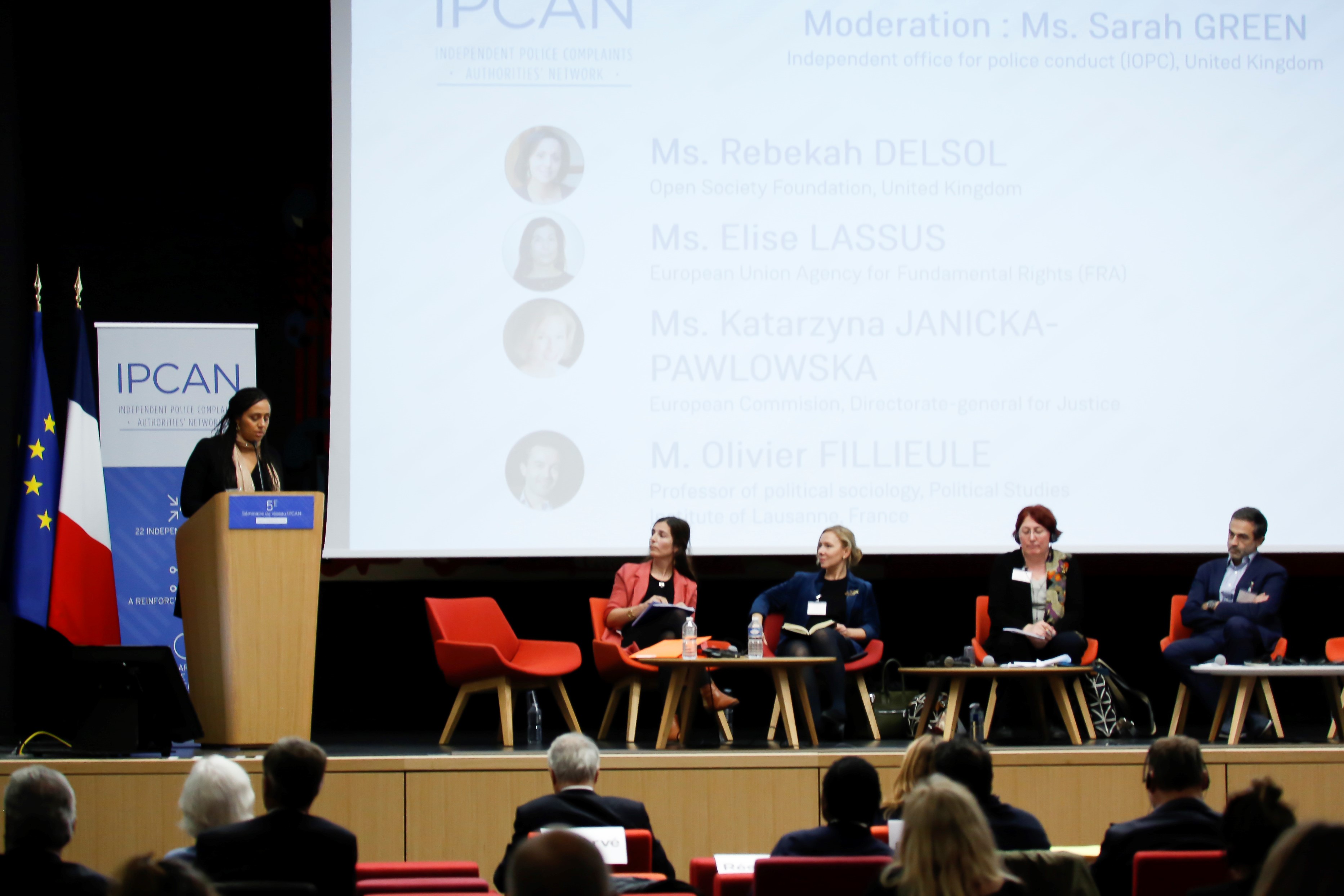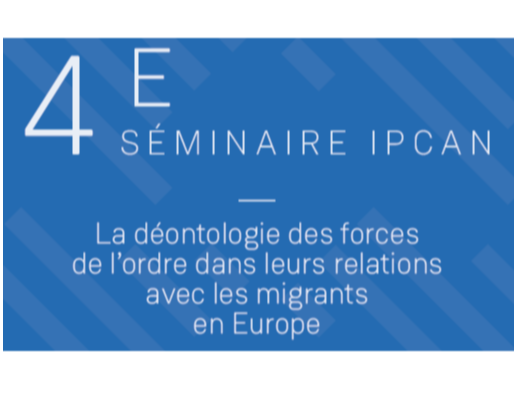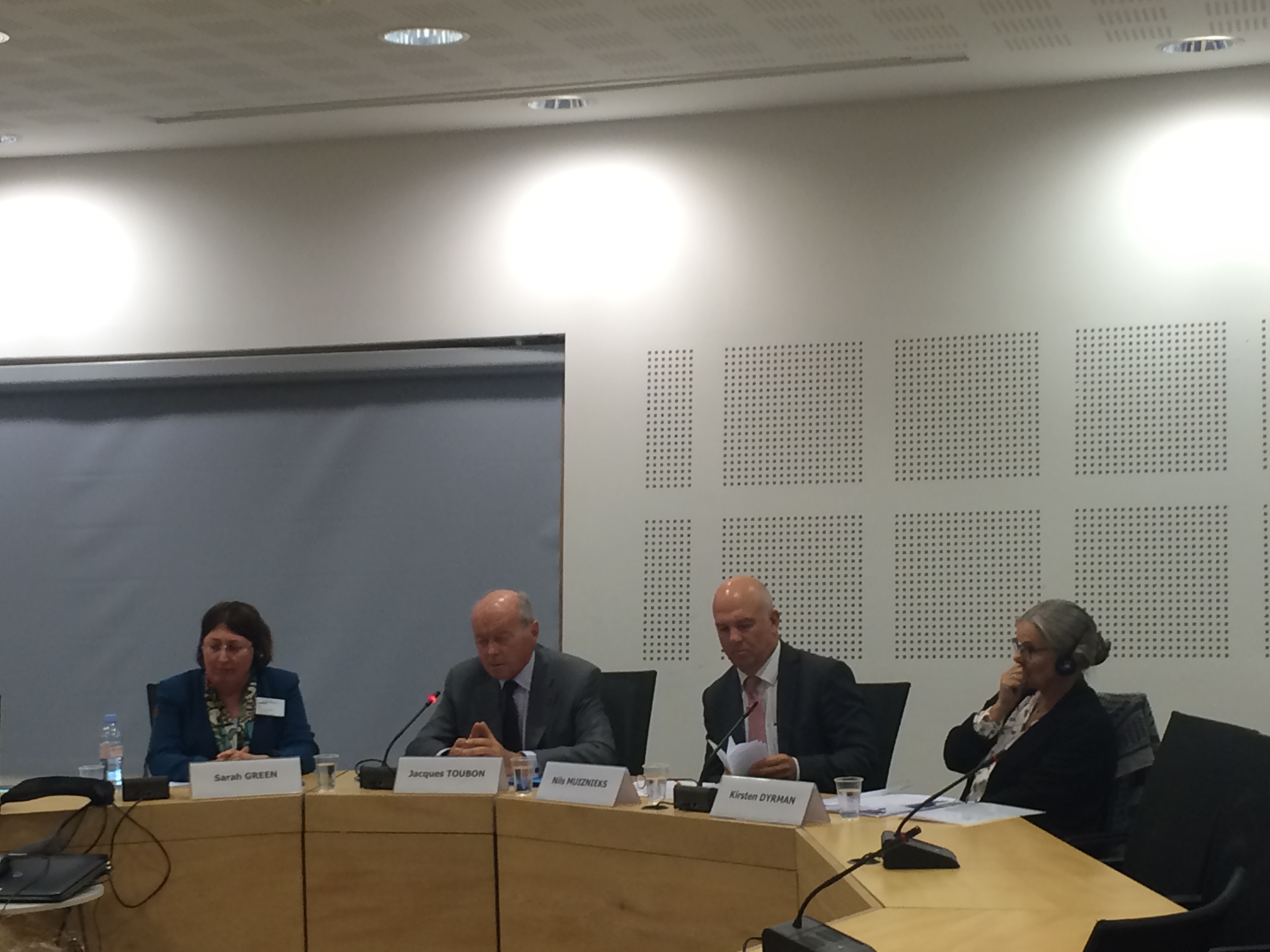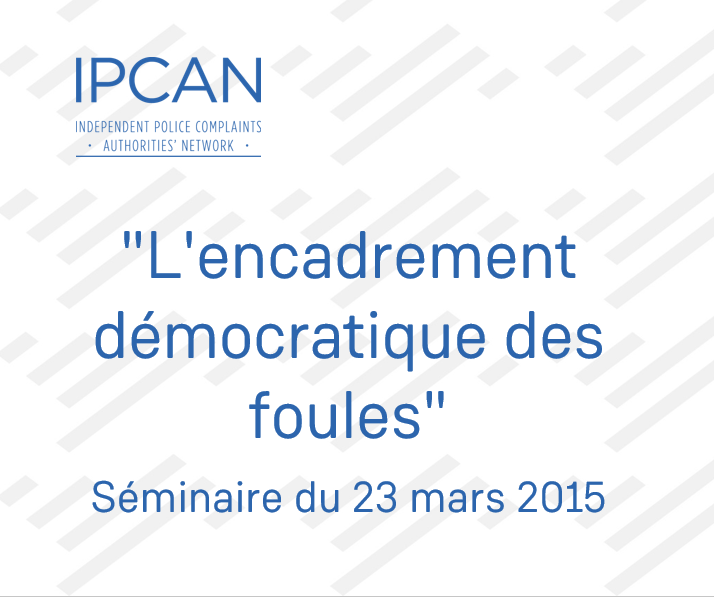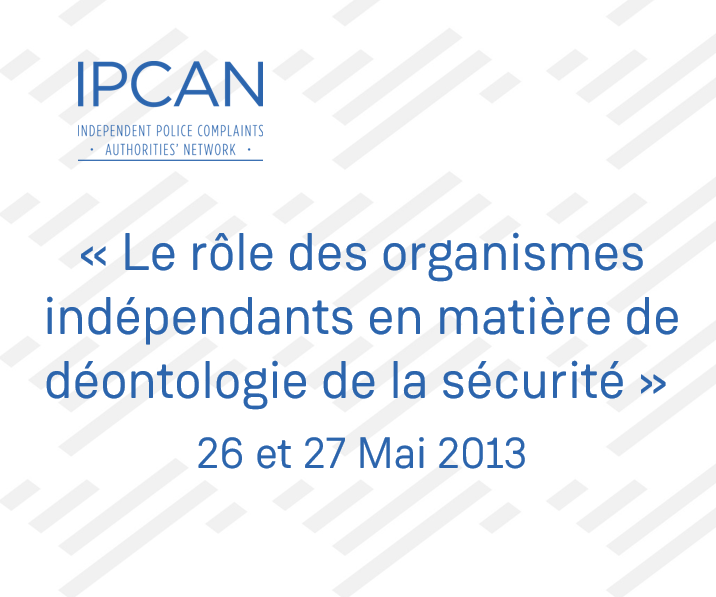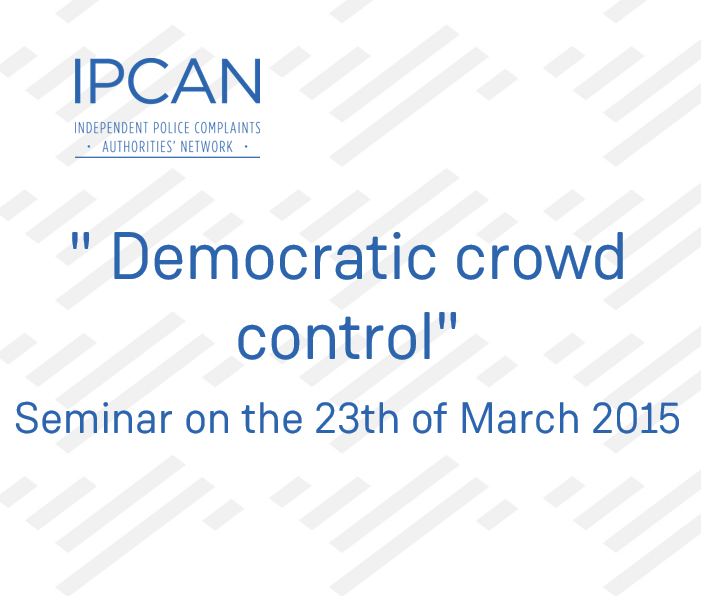
In France and within the European institutions, the issue of democratic crowd management is now at the centre of debates, highlighting different practices in different countries. This is why this theme was chosen as the subject of the 2nd meeting of the IPCAN (Independent Police Complaints’ Authorities’ Network), initiated by the French Defender of Rights. This meeting was also open to many practitioners, members of the police force and specialists in the management of public order, both French and European, representatives of the Council of Europe and the Organisation for Security and Cooperation in Europe (OSCE), as well as researchers involved in this field. More than 85 participants gathered to listen to the interventions of French and European representatives of law enforcement agencies and the IPCAN network, and to discuss them as well as the day’s theme.
.
The morning was devoted to interventions by representatives of French security forces and other European states (Belgium, England, Germany). Thus, police and military officers from the gendarmerie presented the techniques and means of management of public order in their respective countries. There were significant differences in terms of weaponry (the French police forces having by far the largest range of weapons at their disposal), the intervention of specialized or non-specialized units in the management of public order and the role and responsibility of the civil authority in the implementation of the management and restoration of order.
.
At the end of the morning, an OSCE representative reported her findings on the conduct of the demonstrations in Europe and expressed reservations about certain techniques for the intervention of the police, such as the preventive encirclement of demonstrators (the so-called “encagement” or “kettling” technique).
.
The second part of this meeting was devoted to monitoring compliance with the ethics of the security forces in the context of policing in Europe. The speakers, members of the IPCAN network, presented the issues identified in the course of their mission, which led to the following specific recommendations such as:
.
• reducing the use of pinencer movement or kettling, particularly in Denmark;
• the legal framework for the use of intermediate force weapons (pepper spray, particularly in Denmark, flash Ball and “cougar” grenade launchers, particularly in France, water cannons in the United Kingdom, etc.);
• the drafting of detailed reports on each use of weapons, in order to enable more effective identification of the agents involved.
.
Finally, an overview of the case law of the European Court of Human Rights (ECHR) on the subject was presented by one of its members. Recalling that freedom of assembly is a fundamental right in a democratic society, States have an obligation to ensure its effectiveness and to protect their citizens against arbitrariness and the abuse of force. Thus, the Court’s main concerns concern, on the one hand, the importance of the legal framework for law enforcement interventions, training and knowledge of weapons and, on the other hand, the need to be able to identify officers in the field and to guarantee the independence of the authorities investigating the actions of law enforcement agencies.
.
In view of all these interventions, the Defender of Rights called for the strengthening of the IPCAN network (through the transmission of information between its members, as well as the creation of a specific website) and for the network’s partnership with the Council of Europe and other international institutions. The Defender of Rights also recalled the essential role of security forces’ control institutions in the field of law enforcement.
See here the seminar programme and proceedings, 23th of March 2015
Resources
• The French Defender of Rights : Rapport “Le maintien de l’ordre au regard des règles de déontologie” (2018)
• The French Defender of Rights : Report on three means of intermediate force (2013)
• The French Defender of Rights : Opinion of the Denfender of Rights on the missions and methods of maintaining the Republican Order (2015)
• Projet GODIAC : Recommendations for policing political manifestations in Europe (2013)
• OSCE, ODHIR : Human rights handbook on policing assemblies (2016)
• Amnesty International : Policing Assemblies (2013)
• Independent Police Complaints Commission (former IOPC) : report on policing protest (2004)




